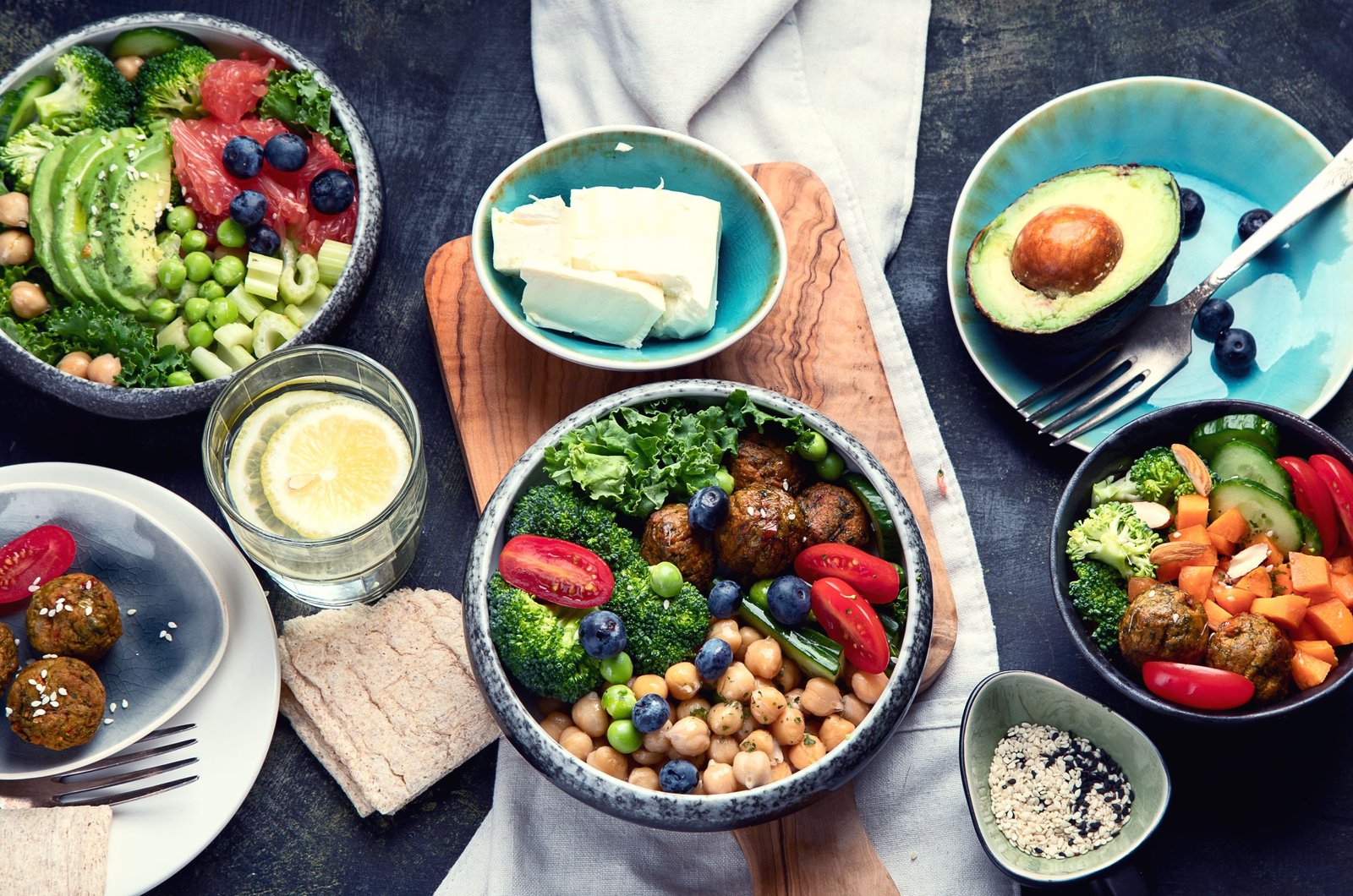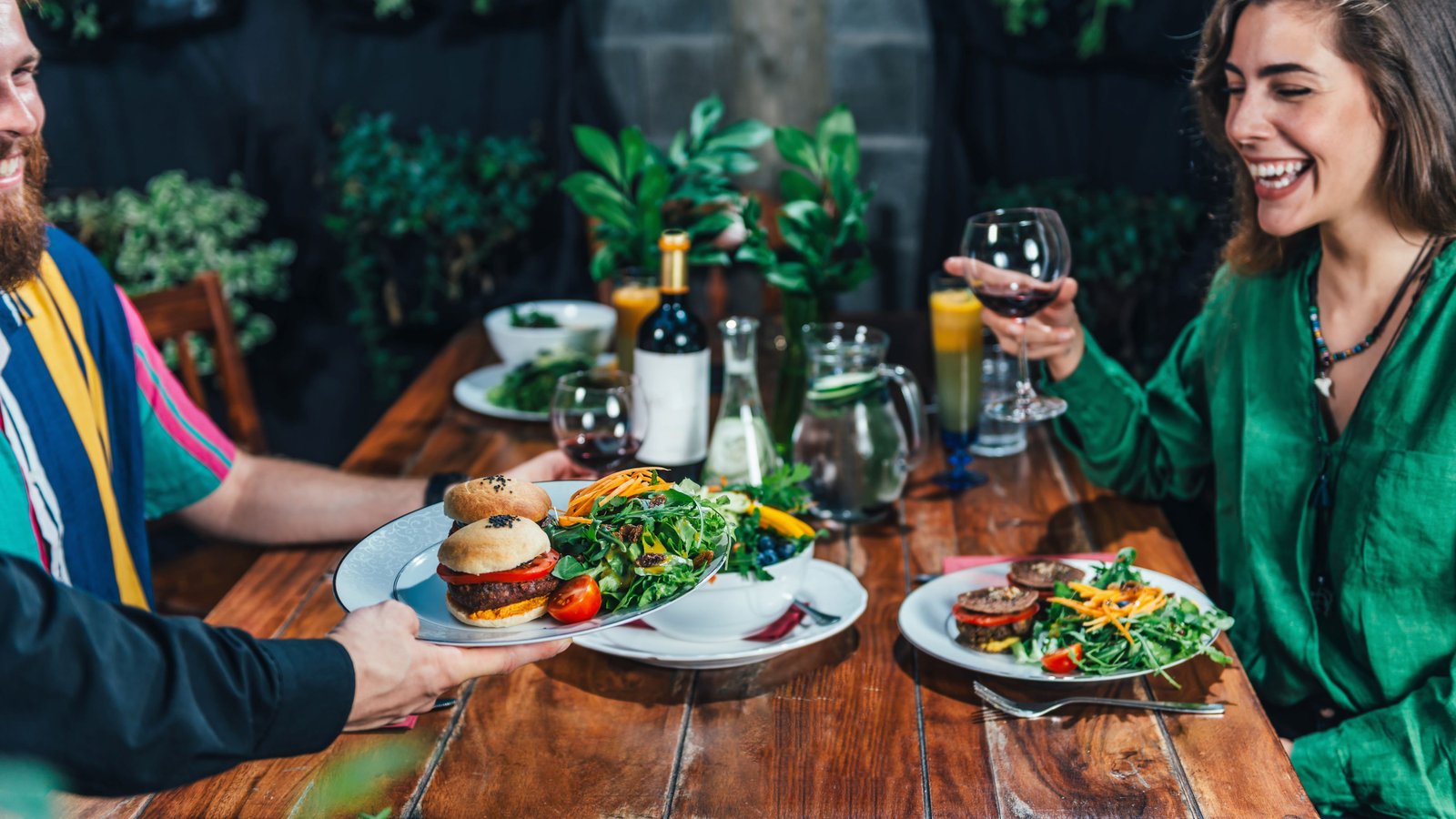

VEGAN and meat lover
My friend Lucy is a pure vegan and her husband Donny is a meat lover. They're the classic odd couple where Donny loves steak and Lucy enjoys seitan. Despite their contrasting taste buds, they're a team that's always happy and cheerful together. I'm always surprised and thrilled by the chemistry they share, despite their dietary differences. It makes me curious about how they manage to overcome such a huge difference, because it's not easy. Whenever my husband and I go out to dinner, we end up fighting over small issues.
So one fine night when we were having dinner together, I asked them their secret. Donny replied instantly, 'Oh, I have a funny story to share. The moment I saw Lucy, I told my friend I was going to marry this beautiful girl one day. So, I started chasing her. After all my efforts, finally, one day she agreed and we started dating.

So, on our very first date, we went to Santa Monica Pier and had a very fun day. I wanted to impress her, so I took her to a fancy restaurant. As we sat down to order, Lucy surprised me by saying that she is vegan. I was initially taken aback. I never would have guessed that the person I was deeply in love with and wanted to marry was a vegan! It was very challenging, but we accepted it, and I guess I'll just have to learn to love tofu and tempeh as much as Lucy does if I want to be with her.'
Lucy and Donny entangled their fingers. I can see the love in their every gesture. Lucy was looking at Donny and she said "well honey, we might never be able to enjoy a romantic steak dinner together. But at least we can bond over our mutual love of vegetables!"
And then there was laugh, love and happiness.
It's true that couples can face challenges when there are differences in their eating habits. However, with communication, compromise, and mutual respect, these challenges can often be overcome.
What are these challenges?
One of the biggest challenges that couples face is figuring out how to plan meals together. When one person is a vegan and the other is a meat lover, it can be difficult to find meals that satisfy both preferences. However, there are many creative solutions to this problem. For example, couples can try making vegan versions of meat-based dishes, or incorporating vegetarian or vegan options into meals that also include meat. They can also take turns choosing restaurants that cater to each other's choices.
Another challenge that couples face is learning to respect each other's choices. For example, a meat lover might feel frustrated that their partner is vegan, or a vegan might feel upset that their partner eats meat. However, it's important to remember that everyone has the right to make their own dietary choices. Instead of trying to convince their partner to change, couples can focus on finding ways to support each other and accommodate each other's liking.
Finally, it's important for couples to communicate openly and honestly about their feelings. If one person feels upset or frustrated about the differences in their eating habits, it's important to talk about those feelings in a respectful and non-judgmental way. By working together and being supportive of each other, couples can overcome the challenges that arise from differences in their eating habits and build a strong and healthy relationship.
People might imagine that couples with dietary opposite habits have difficulty managing their relationships because food is often seen as an important part of our lives and our culture. When one person is a vegan and the other is a meat lover, it might seem like their differences in dietary preferences could create tension or conflict in their relationship.

Additionally, food is often tied to our beliefs and values. Vegans might have ethical concerns about animal rights or the environmental impact of animal agriculture, while meat lovers might prioritize the taste and convenience of meat-based dishes. These differing beliefs and values can sometimes create misunderstandings or arguments.
However, it's important to remember that relationships are complex and multi-dimensional. While differences in dietary preferences can create challenges, they are not insurmountable. Couples can still find ways to accommodate each other's preferences and build a strong and healthy relationship.
Ultimately, what matters most is the love and respect that partners have for each other. If both partners are committed to finding a way to make their relationship work, they can overcome any challenges that arise, including those related to food and diet.
It will not be correct to think that there will not be any resentment or frustration. There will definitely be times which will test your patience. One partner might feel like they are constantly compromising or sacrificing, while the other partner might feel like they are not being understood or respected. But whatever the situation is never try to control or change your spouse's eating habits. Trying to convert your partner's eating habits can lead to resentment and tension in the relationship. Instead, it's important to respect your partner's choices and give them the time and space to make their own decisions.
It's also important to have open and honest communication about your dietary preferences and how they impact your relationship. Both partners should be willing to listen to each other's concerns and find ways to accommodate each other's dietary lifestyles.
For example, the vegan partner could offer to cook vegan meals for both of them, or the meat-eater could suggest trying a vegetarian restaurant that offers options for both of them. It's about finding a balance and compromise that works for both partners.
Eventually, it's important to remember that dietary habits are just one aspect of a relationship, and there are many other factors that contribute to a healthy and happy partnership. As long as both partners are respectful of each other's choices and willing to find ways to accommodate each other, a relationship between a vegan and a meat lover can thrive.
It's great that Lucy and Donny have found a way to navigate their different eating habits and still maintain a happy and loving relationship. It's a testament to the fact that couples can have differences, even in their dietary preferences, and still make it work.
It's important to remember that relationships are built on more than just shared eating habits. While food is an important part of our lives, it's not the only thing that matters. Interacting with each other, mutual understanding, and a willingness to compromise are all key factors in maintaining a healthy and happy relationship.

It sounds like Lucy and Donny have found a way to make their relationship work despite their differences. Perhaps they have found creative ways to plan meals together or have learned to respect each other's dietary choices. Whatever the case may be, it's clear that they are committed to each other and have found a way to make their relationship thrive.
Are you the partner who can make such a compromise to make things work and excel in a relationship.
Disclaimer :"All characters in the story are fictitious, any resemblance to any living or dead individual is a coincidence.”
Comments